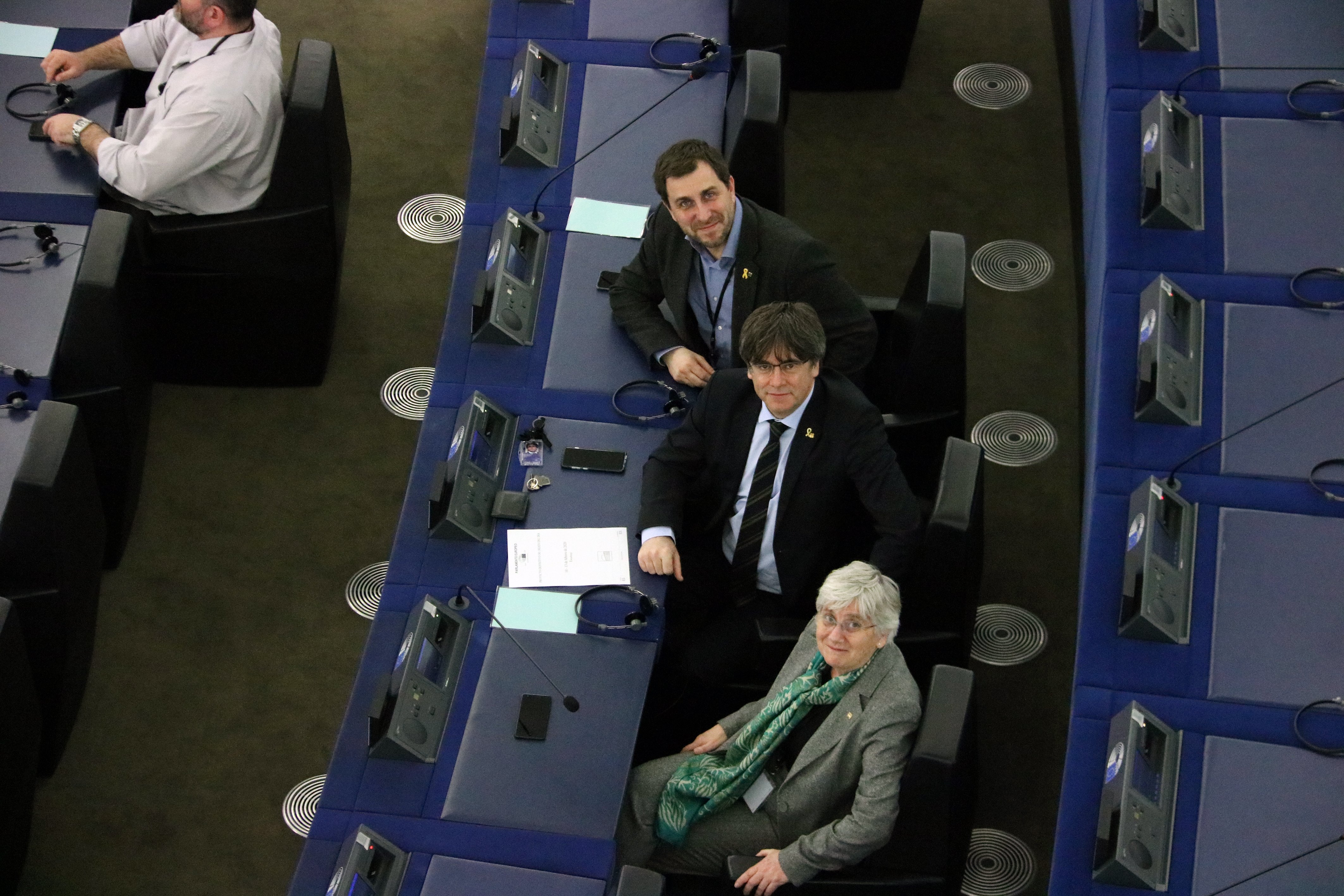The trio of exiled Catalan MEPs have once again drawn attention to the internal contradictions in the EU's discourse on the defence of the rule of law and fundamental freedoms after a new diplomatic incident today arising from the Union's calls for the release of Russian opposition leader Alexei Navalni. Parliamentarians Carles Puigdemont, Toni Comín and Clara Ponsatí have presented a question to the European Commission on the credibility of the head of European diplomacy, Josep Borrell, to demand the release of Navalni when Amnesty International and the United Nations have also demanded the release of Catalan political prisoners without obtaining any result.
"Is the Commission concerned that disregard for the opinions of Amnesty International and the United Nations Working Group applying to a Member State undermines Mr Borrell's credibility to demand the release of Mr Navalni?" asked the MEPs in a question for written response.
They put the question to the Commission on the same day that Russian foreign minister Sergei Lavrov responded to Borrell's calls for Navalni's release by recalling the existence of political prisoners in Catalonia and episodes of police excesses in different EU countries. Lavrov made his protests during a joint press conference in Moscow after the holding of a working meeting.
UN calls for Spanish action
In their question, the three representatives of the Junts group remind the Commission that the European Parliament and Amnesty International have called for Navalni's release, and that Borrell has warned that imprisonment goes against Russia's international commitments on the rule of law and fundamental freedoms.
However, they point out that Amnesty International has also called for the immediate release of Catalan pro-independence activists Jordi Cuixart and Jordi Sanchez on eight occasions, as requested by the UN Arbitrary Detention group. However, neither Spanish nor European authorities have reacted to these requests.
Thus, the Catalan MEPs probe the Commission's views on the comparability of the two cases - Russian and Spanish - by asking how relevant the EU feels that Amnesty International's views are on Navalni, as well as on the Cuixart and Sànchez case. Similarly, the Commission is asked to consider whether it would take into account the position of the UN and its Working Group on Arbitrary Detentions in the Navalni case - given that ìn the case of the Catalan prisoners, two UN Working Group rulings calling for the release of the jailed leaders have not found a positive response from Spain or Europe.
In the main image, Toni Comín, Carles Puigdemont and Clara Ponsatí, in their seats in the European Parliament / ACN

